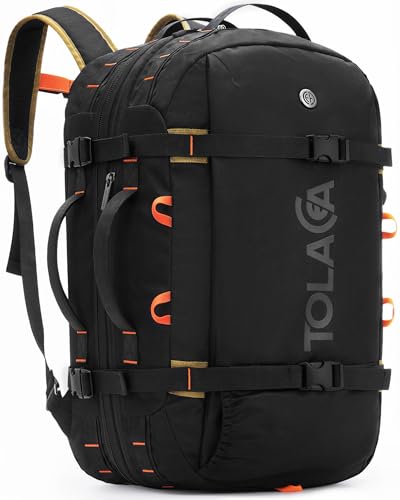



Transporting fresh fruits in your personal carry-on is typically permitted, but it’s advisable to check the specific guidelines of your destination country. Many nations allow entry of certain types of unprocessed fruits, while others impose restrictions due to agricultural regulations.
Always declare any edible items at customs to avoid fines or confiscation. Some regions prohibit specific varieties, particularly if they are considered pests. Familiarize yourself with the local rules before packing.
Keeping fruits intact and unprocessed can help ensure smoother passage through security checks. If traveling to multiple countries, verify each location’s policies as they may differ significantly, especially in areas prone to agricultural disease. Safe travels!
Transporting Dried Fruits through Airport Security
Travelers can bring dried fruits, including various types, in their onboard bags without facing significant restrictions. However, it’s advisable to ensure these items are properly packaged and sealed to avoid spillage or scent disruption during the flight.
Customs Regulations
Before departing, check the customs guidelines of your destination. Some regions impose strict regulations concerning agricultural products. Verify whether the specific type of dried fruit is allowed to prevent potential confiscation upon arrival.
Packaging Tips
Opt for vacuum-sealed or commercially packaged options to maintain freshness and comply with airline standards. Clear labeling can also expedite the security screening process, assisting in identification during inspections.
Understanding International Regulations for Carrying Fruits
Travelers should remain aware of the regulations concerning the transport of agricultural products across borders, as restrictions vary significantly by country and region.
Common Restrictions
- Many nations prohibit bringing in fresh fruits, including dried varieties, to prevent the introduction of pests and diseases.
- Specific limitations may exist regarding quantity–often only small amounts for personal consumption are allowed.
- Certificates may be required to verify the origin and treatment of the items.
Country-Specific Guidelines
Before traveling, checking the regulations of the destination is crucial:
- In the United States, travelers can bring dried fruits as long as they are commercially packaged and do not originate from countries with specific agricultural concerns.
- European Union countries typically allow dried products, but local rules concerning herbs and spices may apply.
- Australia and New Zealand have stringent bans on various plant products; consult their customs regulations for precise details.
Consulting the customs website of the destination country provides the most accurate and up-to-date information on allowable items and requirements.
Packaging and Handling Dates for Air Travel
Use airtight containers or resealable bags for optimal storage. This minimizes the risk of moisture, which could lead to spoilage or loss of quality during transit.
Ensure that the packaging is durable to prevent crushing or damage from other items. Soft or fragile types may not withstand the handling process at various checkpoints.
Label the containers clearly with contents and your contact information. This can assist customs officials in quick identification and reduce the likelihood of issues during inspections.
Avoid overpacking to maintain ease of access when security checks occur. Keeping fruits readily accessible can expedite the process and avoid unnecessary delays.
Maintain a clean and hygienic environment for packaging. Always wash hands and surfaces before handling items. This minimizes contamination risks and ensures that everything remains in good condition.
Consider the specific climate conditions of your destination. If adverse weather is anticipated, additional insulation or temperature-controlled packaging might be necessary.
Be aware of potential restrictions on quantity. Countries might impose limits on how much one can bring. Familiarize yourself with these guidelines to avoid complications.
Finally, inspect your items prior to departure to ensure they appear fresh and are free from visible signs of spoilage or damage. This can prevent any issues from arising while traveling.
Customs Declarations and Restrictions on Dates
Declare all dried fruit products at customs to avoid fines or confiscation. Some countries impose strict regulations on agricultural items, including specific varieties of these fruits. Before departure, verify the regulations of the destination country regarding such agricultural goods. For instance, the European Union has stringent rules concerning the importation of plant products due to pest prevention policies.
When packing these fruits, ensure they are well-sealed and labeled if applicable. This aids in a smoother inspection process at customs. Organic or untreated versions may face harsher scrutiny, so consider opting for commercially packaged options that are more likely to pass inspections.
Depending on the travel itinerary, some nations may prohibit the import of any fruits entirely. Always check with the airline and customs agency before travel to ensure compliance. This preemptive step can help avoid unnecessary delays or issues upon arrival.
Keep documentation of purchases, particularly when moving between countries with strict agricultural controls. This can expedite the customs process, making it easier to pass through inspections with minimal hassle.
Tips for Smooth Security Checks with Dates
When preparing for security inspections, ensuring your dried fruits are easily accessible is paramount. Store them in a transparent, resealable bag to simplify the process. This allows security personnel to see the contents without needing to open your container.
Temperature Concerns
While packing, consider temperature sensitivity. Keeping your items at room temperature will help maintain their texture and flavor during travel. Avoid placing them near items that can generate heat, such as laptops or other electronics.
Avoiding Strong Odors
Choose varieties with minimal scent to prevent attracting unnecessary attention. The smell of certain fruits could raise security flags. Opt for dried options that are less fragrant, allowing for a smoother passage through screening.
For a pleasant travel experience, consider investing in the best backpack for weekend trips to keep your essentials organized and accessible. Additionally, utilize the best luggage storage in Athens to secure your belongings during layovers or quick stops. If you’re in search of reliable kitchenware for post-travel meals, check out the best fully integrated dishwashers.







